- Home
- Jim Eldridge
Assassins Page 2
Assassins Read online
Page 2
Stark sighed wearily. ‘Very well,’ he said. ‘Tell him I’ll be along in a couple of minutes.’
The sergeant looked even more apologetic. ‘He said he needs to see you now, sir,’ he said. ‘Straight away.’
Stark gave him an enquiring look. ‘Did he say why?’ he asked, getting to his feet.
‘No, sir. Just to ask you to report to his office as a matter of urgency. Now.’
Stark shrugged. ‘Very well,’ he said. He turned to Danvers. ‘Can you hang on here? Just in case this turns out to be something important.’
‘Of course, sir,’ nodded Danvers.
As he watched the DCI leave, Danvers mentally kicked himself. Had he gone too far with that business about the guns? The boss had seemed impressed; he’d even commended his enthusiasm. But the truth was he still didn’t really know where he stood with the DCI.
It’s the war that separates us, thought Danvers. He fought, I didn’t. But God, I tried! I joined up as soon as I could, as soon as I was old enough. But by the time Danvers had finished his training it was November 1918, the Germans had surrendered and it was all over. Maybe he thinks I’m lacking because I didn’t see action, he thought. Thinks I’m not cut out for this job. Well, I am. And I’ll show him I am.
Stark made his way along the wood-panelled corridor towards the chief superintendent’s office. The place smelt of polish. Every day the cleaners came in, mops and buckets cleaning the black-and-white tiled floor, and then someone waxing and polishing the dark wood that adorned the walls. Open a door and the smell changed: paper – piles and piles of paper, on desks, in cardboard box files, stuffed inside brown metal filings cabinets. This place is suffocating in paper and furniture polish, he thought. It stops you thinking. It stops things happening. And meanwhile, the criminals and the killers were out there in the streets, moving, acting, escaping. No paperwork and polish to hold them back.
He arrived at the chief superintendent’s office and knocked at the door. A voice from inside called out, ‘Come in!’ Chief Superintendent Benson was sitting at his large, dark walnut desk. The two men with him were dressed identically in expensive-looking dark suits and white shirts with stiff, starched collars. One was in his fifties, the other late thirties. Both men stood up as Stark came in.
‘These are Chief Inspector Burns and Inspector Rogers,’ introduced Benson. ‘From Special Branch,’ he added, as Stark shook the hands of both men.
So, spies, thought Stark.
Benson got up and made for the door. ‘You may have the use of my office,’ he said to the two men. ‘DCI Stark will give you every help you need. Won’t you, Stark?’
Stark nodded. The chief super doesn’t look happy, he thought. He’s been overridden. Internal politics at play.
Benson left and the older of the pair, Burns, moved round the desk to take Benson’s chair, gesturing for Stark to sit in the chair he’d just vacated. Stark sat and waited for the two men to speak. This was obviously something to do with Lord Amersham. Special Branch investigated subversion, terrorism. Were they also here to direct him towards a Bolshevik plot?
‘The murder of Lord Amersham,’ said Burns quietly. ‘A dreadful thing to happen. And on the streets of London.’
‘Indeed,’ agreed Stark.
‘A prominent member of the Cabinet, a member of the aristocracy. It does make one wonder if there mightn’t be some political connection to the crime.’
‘Mr Churchill has already expressed his view to me that Bolsheviks may be behind it,’ said Stark. ‘We are, of course, looking into that as a line of enquiry.’
This obviously came as no news to either of the two Special Branch men, who merely nodded.
‘Did Mr Churchill mention any other possible lines of investigation?’ asked Burns.
Stark shook his head. ‘No,’ he said. Then he added, ‘But that was his initial reaction, immediately after the event. I am sure he will have had other thoughts since, and will communicate them to me.’ He gave a narrow smile and said, ‘Possibly through Special Branch.’
Burns shook his head. ‘Mr Churchill doesn’t know we are talking to you, Chief Inspector,’ he said. ‘He also may not share our views on another possible course of enquiry.’
Stark looked at the two men, intrigued. Something was up. Something dangerous.
‘What do you know about the negotiations being conducted here in London at this moment about the future of Ireland?’
Suddenly it clicked. The war between Britain and Ireland that had been going on for centuries. The demand for home rule. The fight for Irish Independence. And then he remembered a fact that had come up when he’d been studying for his detective exams, about the history of the Metropolitan Police: Special Branch had originally been called the Special Irish Branch when it was created in 1883. It had been set up with one aim: to combat the Irish Republican Brotherhood.
‘You think Lord Amersham’s murder is connected to the talks going on in London?’ he asked.
Burns and Rogers exchanged glances. Then Burns said, ‘It is a possibility.’
‘And why would Mr Churchill not share that view?’ Stark asked. ‘He is Secretary of State for the Colonies, which covers Ireland. He’s part of the talks that are going on. And he would know better than most that Lord Amersham was vehemently opposed to home rule for Ireland.’
‘You’ve been doing your homework, Chief Inspector,’ said Rogers.
‘In this instance, I didn’t need to do that much,’ said Stark. ‘Lord Amersham has been in the newspapers a great deal lately, attacking the very idea of talks with the Irish delegation. Or “this murdering Fenian rabble”, as he called them.’
Burns allowed himself a smile. ‘Lord Amersham was much given to intemperate phrases in expressing his views,’ he said. ‘Whether on the Irish question, Communists …’
‘Votes for women,’ added Rogers.
‘That would suggest a very long list of people his Lordship must have upset,’ said Stark.
‘But very few who would have the gall – or the necessary experience – to gun him down in the streets of London in broad daylight.’
‘We understand three bullets were fired?’
Stark nodded.
‘That suggests someone very determined, and experienced.’
‘Or possibly someone panicking, using a pistol for the first time,’ countered Stark.
‘All three bullets hit their target,’ responded Rogers. ‘Amateurs rarely have that sort of luck.’
‘They were fired at close range,’ said Stark. ‘It would be hard to miss.’
‘Not for someone who wasn’t used to firing a gun,’ said Rogers.
Stark nodded. The same thought had occurred to him. The first time most people fired a gun they shot wildly because they weren’t used to the force of the gun kicking back in their hand. Their bullets usually missed the target, even at close range. All three bullets had hit where the killer wanted them to hit: the heart, the head.
‘We also understand that the murder weapon was a nine-millimetre pistol. Most likely German.’
They have been quick, thought Stark. ‘Yes,’ he said. ‘That was the thought that occurred to my sergeant and me.’ Give Danvers credit, he thought. He deserves it.
‘A lot of the arms smuggled into Ireland during the recent trouble came from Germany,’ said Rogers. ‘We found quite a few German Lugers in the hands of the IRA.’
Stark nodded thoughtfully. Circumstantial evidence, maybe, but these pieces of the jigsaw seemed to fit together easier than the idea of a mad Bolshevik.
‘You asked earlier why Mr Churchill may not think that the Irish are behind this murder,’ said Burns. ‘Mr Churchill is convinced that these treaty negotiations will result in a new future for Ireland.’
‘And for mainland Britain,’ added Rogers. ‘An end to the shootings and bombings we’ve had to endure from the IRA these last few years. He won’t want anything to ruin those talks. He needs them to succeed. His career would benefit g
reatly from their success.’
‘In other words, he’ll turn a blind eye to it if it turns out to be the Irish?’ asked Stark.
Burns hesitated, then shook his head. ‘No,’ he said. ‘In fact, it might even give him a bargaining chip.’
Rogers smiled. ‘Arrest a member of the delegation and offer to release him for the right result of the treaty negotiations.’
Politics, thought Stark. ‘Why me?’ he asked. ‘The Irish situation is a Special Branch issue.’
‘Because you are the officer investigating the murder of Lord Amersham,’ said Burns. He gave the briefest of pauses, and then added softly, ‘And they might prefer to talk to you rather than us.’
‘Your grandmother was Irish Catholic from Cork, wasn’t she,’ said Rogers.
It wasn’t a question. They knew, and Stark felt a sense of anger that they’d been digging into his past history like this. Nothing could be hidden. He wondered how far back they’d gone. And how deeply they had dug into his life? Had they dug into …? No, they couldn’t have. The facts were there, on the official record. He was in the clear.
‘County Cork,’ Stark clarified. ‘Banteer. A small village to the west of Mallow.’
‘She came to England in 1845,’ nodded Burns. ‘The Famine?’
‘I expect so,’ agreed Stark. ‘That’s why most Irish left. No food.’
‘And she came to England and married your grandfather, who was a Protestant.’
‘You’ve been doing your homework,’ said Stark.
‘But neither you nor your father was raised as Catholic.’
‘Is my religion very important?’
‘Religion is very important to the Irish.’
‘Then perhaps I’m the wrong person to be talking to them.’
‘You’re an atheist?’
Stark hesitated, then said, ‘Let’s just say I have my doubts.’
‘Perfect,’ said Rogers. ‘You’re not biased either way. They might like that.’ He opened a desk drawer and took out eight plain paper manila files. Stark saw that each one contained papers; some of the files were thicker than others. ‘We think it might be useful for you to take a look at what we have on the members of the delegation, to help you choose which one you think it worth talking to first.’
‘Bearing in mind that once you’ve talked to one of them, all the others will be prepared,’ added Burns. ‘False trails will be laid.’
‘If they haven’t been already,’ said Rogers quietly.
Stark looked at the small pile of files. ‘These files …’ he began.
It was Burns who interrupted him off with an apologetic smile. ‘I’m afraid they must stay here,’ he said. ‘In this office.’
‘And we’d prefer it if only you read them, at this stage,’ said Rogers. ‘At least, from outside Special Branch.’
Stark studied them. ‘Detective Sergeant Danvers is working with me on this investigation,’ he said. ‘It will be useful for him to have this information.’
‘By all means tell him what you feel he needs to know,’ said Burns.
‘Selectively, of course,’ added Rogers. ‘There’s no need for him to know everything at this stage. Only what could be relevant to the investigation.’
Who’s to say what’s relevant and what isn’t? thought Stark. Aloud, he said, ‘Do I get the impression you think he might be a security risk?’
‘Everyone is a possible security risk,’ said Rogers firmly. Then his tone softened as he added, ‘In the case of Sergeant Danvers, we have no suspicions.’
‘It’s just that he’s young and eager,’ said Burns.
‘And impressionable,’ put in Rogers.
In other words, they don’t trust him, thought Stark. And they don’t trust me, either. But they’ve been forced to bring me in; not because I’m a chief inspector, but because my grandmother was Catholic from County Cork.
Rogers tapped the small pile of manila files. ‘You’ll find files on the key members of the Irish delegation. The official leader of the delegation is Arthur Griffith. He, Robert Childers, Eamonn Duggan and Robert Barton are staying at twenty-two, Hans Place in Knightsbridge. Michael Collins, the delegation’s deputy leader, along with Liam Tobin, Ned Broy and Joe McGrath, are staying at fifteen, Cadogan Gardens.’
‘Any reason why they aren’t all staying at the same place?’ asked Stark.
Rogers tapped the files again with his forefinger. ‘Read the information. It might give you an answer to that question.’
Burns went to a tall metal filing cabinet, unlocked it, pulled out a drawer and produced a dark-coloured cardboard box file. He shut the drawer of the filing cabinet, strolled to the desk and put the cardboard file down next to the pile of manila files. ‘This one is not with the delegation,’ he said. ‘But his file will make interesting reading. It might throw some light on the negotiations, and some of the undercurrents that are going on.’
‘Éamon de Valera,’ explained Rogers. ‘The president of the so-called Irish Republic. He’s in Dublin.’
Stark nodded, studying the files. There was a lot of information there. This was going to be a long night.
THREE
Danvers was poring over witness statements when Stark returned to his office.
‘I need you to deliver a note to my home for me,’ said Stark. ‘I shall be working late tonight. Very late. I could send a uniform with it …’
‘I’ll do it,’ said Danvers quickly. Then he added, hopefully, ‘I can come back and help you, if you like?’
Stark shook his head. ‘No, that’s all right,’ he said. ‘Just delivering the note will be fine.’ Tell him what you feel he needs to know, Special Branch had said. In Stark’s opinion, the sergeant needed to know why he was being excluded. Danvers was about the only person he trusted. It was a trust Stark couldn’t afford to lose, especially on this case, where the sergeant’s insights into the upper classes could prove invaluable. ‘The fact is that a couple of inspectors from Special Branch were waiting for me in the chief superintendent’s office.’
‘Oh?’ At the mention of Special Branch, Danvers was suddenly alert.
‘They’ve insisted I have to read some files in the super’s office tonight. It seems they don’t even trust them to a chief inspector’s care.’
‘Files, sir?’ asked Danvers.
‘On the Irish delegation,’ said Stark. ‘SB suspect the Irish may be behind the killing of Lord Amersham. I asked if you could work on the files with me, but SB said no. Apparently, no one below the rank of chief inspector is allowed to see them.’ That wasn’t strictly true but Stark knew it would make the young man feel better. ‘Anyway, off you go home.’ He scribbled a brief note to his parents, explaining that he was working late and would be home as soon as he could, put it in an envelope, wrote the address on it and handed it to Danvers. ‘Plender Street, Camden Town,’ he said. ‘I’m afraid it’s out of your way …’
‘That’s no problem, sir,’ Danvers assured him. He took the envelope from Stark. ‘Is there anything else you want me to do?’
Stark shook his head. ‘No,’ he said. ‘I’ll see you in the morning, Sergeant. If you need me for anything urgent before then, I’ll be in the chief superintendent’s office.’ With that, he left.
Danvers looked at the address on the envelope: 61 Plender Street. He’d catch the bus to Mornington Crescent; Plender Street was just a brief walk from there. Afterwards, he’d walk home, back to his own small one-bedroom flat near Russell Square. He liked to walk: it helped him think, untangle the jumble of thoughts in his mind. Like now, about the murder. The papers and the public would want immediate results. An arrest. If nothing happened over the next few days, there would be an outcry. Danvers could visualize the front pages of the papers: What are the police doing?
So Special Branch thought it was connected with the Irish talks going on. Was it? If so, the DCI would sniff it out. Stark was a good detective – a very good detective: clever, perceptive, not corrupt, which
seemed to Danvers to be a rarity – but he was so private that it was almost impossible at times to find out what he was thinking – certainly, what the DCI was feeling. He didn’t seem to want to let anyone close to him.
Stark had no friends in the department, as far as Danvers could tell. He worked and he went home. He never socialized. Occasionally, he’d be forced to attend a leaving do for someone at the Yard, but on those occasions Danvers had seen him standing with the same half-filled glass of beer in his hand, never replenished, nodding politely as people talked to him, exchanging bland social pleasantries, and then – when it was socially acceptable – slipping away, apparently off home.
Danvers looked at the envelope again: home to 61 Plender Street. In a way, this was a first. In the three months they’d been working together, Stark had never invited Danvers to his home. And he’d never suggested calling on Danvers at Russell Square. In fact, no one called on Danvers at his tiny flat except his sister, Lettie. It was as if by cutting himself off from his father and the family home in Hampstead, he’d cut himself off from that strata of society.
That’s one thing that Stark and I have in common, he reflected. We’re both loners, standing outside looking in.
Stark sat at Rogers’ desk in the Special Branch office and opened the first of the brown paper files.
Michael Collins. Micheál Ó Coileáin. Born in Sam’s Cross, Clonakilty, West Cork, Ireland on sixteenth October 1890. Just two days older than me, thought Stark. He skimmed through Collins’s early life: the youngest child of eight children of a farmer. Left school at fifteen and moved to England. Studied at King’s College, London. Took the British Civil Service Examination in 1906, and then went to work for the Post Office. Moved to New York in 1915, and returned to Ireland in 1916. By then he was already a member of the Irish Republican Brotherhood, a secret organization dedicated to achieving independence for Ireland. Stark was intrigued to note that although Collins came from a staunch Catholic family, it had been someone from the Protestant Church of Ireland from Dunmanway in County Cork, Sam Maguire, who had inducted Collins into the IRB. It was suspected that the roots of Collins’s IRB involvement had begun much earlier, though, when he was a boy at Lisavaird National School. The school’s headmaster, Denis Lyons, had been an IRB member.

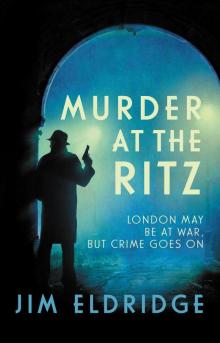 Murder at the Ritz
Murder at the Ritz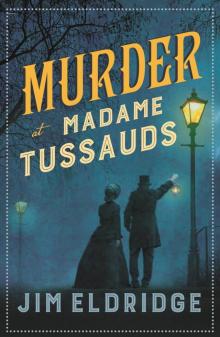 Murder at Madame Tussauds
Murder at Madame Tussauds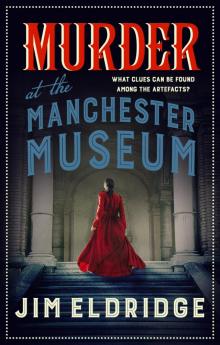 Murder at the Manchester Museum
Murder at the Manchester Museum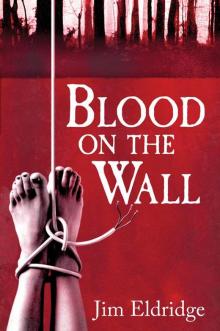 Blood On the Wall
Blood On the Wall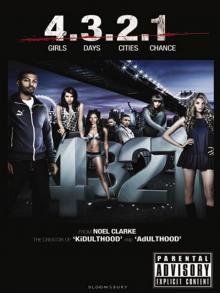 4.3.2.1
4.3.2.1 Jungle Kill (Black Ops)
Jungle Kill (Black Ops)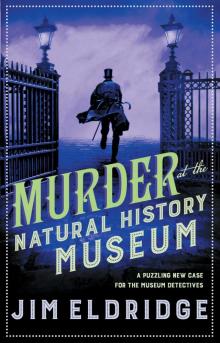 Murder at the Natural History Museum
Murder at the Natural History Museum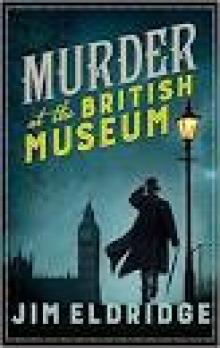 Murder at the British Museum
Murder at the British Museum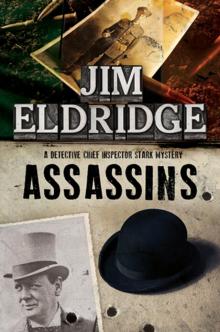 Assassins
Assassins Hunk and Thud
Hunk and Thud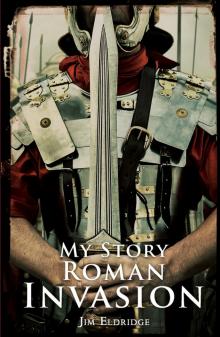 Roman Invasion
Roman Invasion Big Rock and the Masked Avenger
Big Rock and the Masked Avenger The Last Enemy
The Last Enemy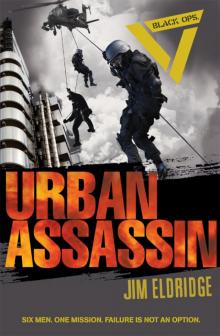 Urban Assassin
Urban Assassin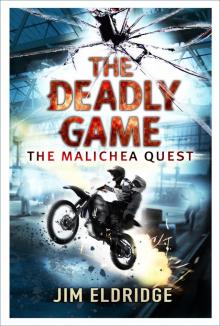 The Deadly Game
The Deadly Game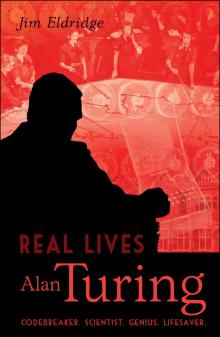 Alan Turing
Alan Turing The Lethal Target
The Lethal Target The Giant Rumble
The Giant Rumble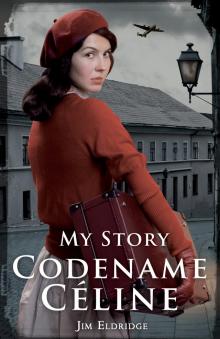 Codename Céline
Codename Céline Death in the Desert
Death in the Desert Escape from Pompeii
Escape from Pompeii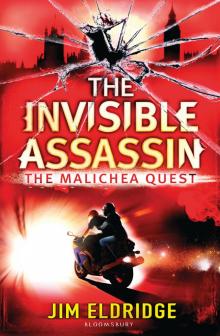 The Invisible Assassin
The Invisible Assassin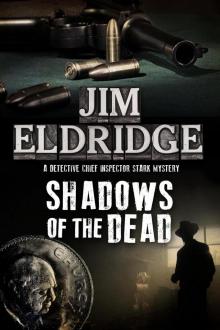 Shadows of the Dead
Shadows of the Dead Jack Versus Veto
Jack Versus Veto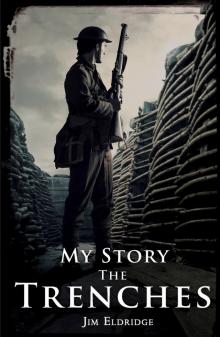 The Trenches
The Trenches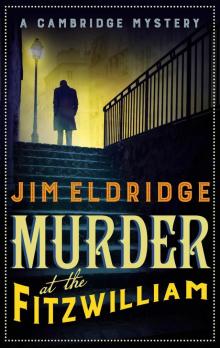 Murder at the Fitzwilliam
Murder at the Fitzwilliam Coming Home
Coming Home